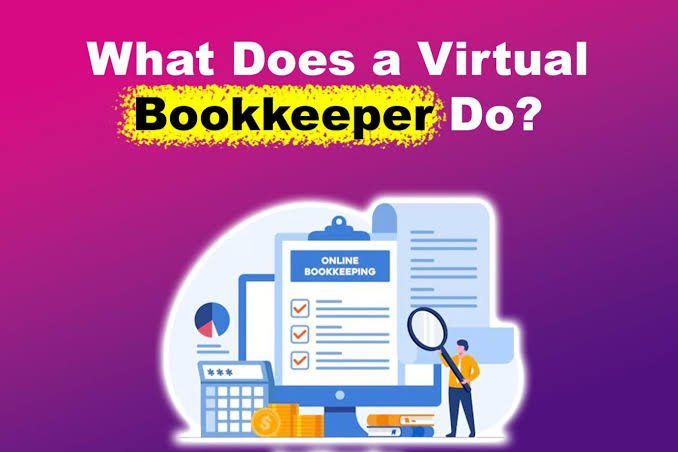Gone are the days when bookkeeping meant stacks of paper and weekly office visits. Virtual bookkeepers have transformed how small businesses manage their finances, offering a more flexible and often more affordable approach.
What Changed in Bookkeeping?
Traditional bookkeeping relied heavily on in-person meetings and paper records. You’d schedule regular visits with your bookkeeper, print receipts, and use software that only worked on one computer. Virtual bookkeeping changes this entirely by moving everything online, making it more efficient and accessible.
Why Businesses Choose Virtual Bookkeepers
Virtual bookkeeping cuts costs significantly by eliminating office overhead. Your bookkeeper can work efficiently from anywhere, often passing these savings on to you. They’ll have access to your financial information in real-time, spotting issues before they become problems. Plus, you’re not limited to local talent – you can work with experts from anywhere.
Smart Tools Driving Change
The most innovative virtual bookkeepers now rely on AI-powered tools to streamline their work. Take receipt management, for instance. Instead of manually typing in data from crumpled receipts, tools like Receiptor AI can instantly capture, categorize, and store receipt information. This automation reduces errors and frees bookkeepers to focus on more valuable tasks like financial analysis and business strategy.
Real-Time Financial Insights
Cloud technology means virtual bookkeepers can provide instant financial insights. When your bookkeeper uses modern tools, you can check your business’s financial health from your phone, spot spending patterns, and make faster decisions. It’s like having a financial advisor in your pocket.
Security in the Digital Age
Modern virtual bookkeepers prioritize digital security. Bank-level encryption protects sensitive data, while cloud backups ensure nothing gets lost. Two-factor authentication and secure document sharing have become standard practice, making virtual bookkeeping often more secure than traditional methods.
Cost savings
Traditional bookkeepers often charge $50-100 per hour with minimum monthly commitments. Virtual bookkeepers typically offer more flexible pricing models, with some starting at $300-500 monthly for basic services. The cost savings come from eliminated travel time and automated data entry
Setting Up Your Virtual Bookkeeping System
Success starts with choosing the right tools. Most businesses use cloud accounting software like QuickBooks Online or Xero as their foundation. For managing receipts and documents, look for solutions like Receiptor AI that automatically captures and organizes your financial documents. Add in video conferencing for meetings, and secure cloud storage for sensitive files.
5 Simple Steps to Start Virtual Bookkeeping
- Open a dedicated business bank account: this keeps your business and personal finances separate right from the start.
- Set up your digital toolkit: cloud accounting software like QuickBooks Online or Xero for the foundation, Receiptor AI for capturing receipts through WhatsApp, and a video call app for bookkeeper meetings.
- Connect your accounts: link your bank feeds to your accounting software and set up Receiptor AI’s automated receipt extraction from your inbox to eliminate manual data entry.
- Create a simple filing system: Use Receiptor AI to organize and store your receipts and financial paperwork automatically.
- Establish a daily habit of scanning receipts: Start storing physical receipts using receipt scanners and schedule regular check-ins with your virtual bookkeeper to stay on track.
Making It Work Day-to-Day
The key to successful virtual bookkeeping is establishing simple routines. Use your phone to capture receipts right after purchases. Schedule regular video check-ins with your bookkeeper. Keep communication open through secure messaging. When you build these habits, virtual bookkeeping becomes almost effortless.
How Technology is Revolutionizing Virtual Bookkeepers in 2024
The finance world is changing fast. Modern virtual bookkeepers no longer just crunch numbers – they leverage cutting-edge technology to transform how small businesses manage their finances.
The Evolution of Virtual Bookkeeping
Remember when bookkeeping meant drowning in paper receipts? Today’s virtual bookkeepers use cloud-based tools and artificial intelligence to automate tedious tasks. This shift doesn’t just save time – it’s changing how businesses interact with their financial data.
Smart Tools Driving Change
The most innovative virtual bookkeepers now rely on AI-powered tools to streamline their work. Take receipt management, for instance. Instead of manually typing in data from crumpled receipts, tools like Receiptor AI can instantly capture, categorize, and store receipt information. This automation reduces errors and frees up bookkeepers to focus on more valuable tasks like financial analysis and business strategy.
Real-Time Financial Insights
Cloud technology means virtual bookkeepers can provide instant financial insights. When your bookkeeper uses modern tools, you can check your business’s financial health from your phone, spot spending patterns, and make faster decisions. It’s like having a financial advisor in your pocket.
Security in the Digital Age
Modern virtual bookkeepers prioritize digital security. Bank-level encryption protects sensitive data, while cloud backups ensure nothing gets lost. Two-factor authentication and secure document sharing have become standard practice, making virtual bookkeeping often more secure than traditional methods.
The Future of Virtual Bookkeeping
As technology advances, virtual bookkeepers are becoming more like tech-savvy financial advisors. They’re using predictive analytics to forecast cash flow, automated reconciliation to spot discrepancies, and integrated systems to give business owners unprecedented control over their finances.
Virtual bookkeeping isn’t just about going paperless – it’s about using technology to make financial management smarter, faster, and more insightful than ever before.
Passionate content writer and savvy blog publisher, Aamir crafts compelling stories and insightful articles that captivate and inform. With a knack for blending creativity and strategy, they bring fresh perspectives to every piece. Dive into their world of words and discover content that resonates.





